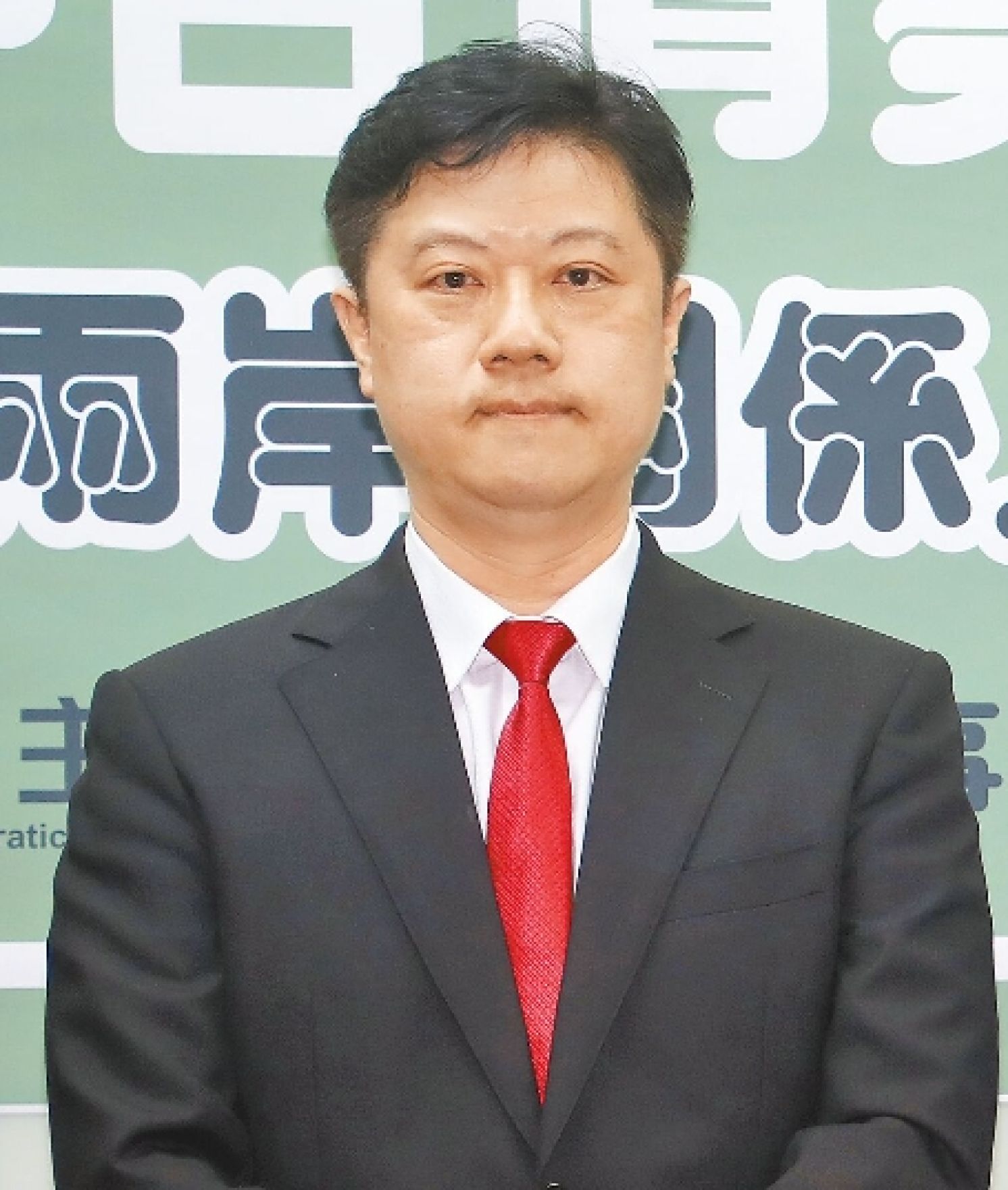
Cross-Strait Scholars Dialogue, DPP China Affairs Director:Taiwan Independence Party Charter a "Historical Document"
China Times, February 26, 2024
In the aftermath of the incident where Taiwan’s Coast Guard patrol led to the capsizing of a mainland Chinese fishing boat crossing the Kinmen border, Democratic Progressive Party (DPP) officials exchanged a video call meeting with mainland scholars, in order to promote the idea of a "DPP-Communist Party Dialogue." Wu Chun-chi, director of the DPP’s China Affairs Department delivered a speech on the 25th during the online forum, which was attended by overseas Chinese scholars, and scholars from both sides of the Taiwan Strait, introducing the DPP's proposition. Wu said that the Taiwan independence party charter "is already a historical document" and there is no need to separately declare Taiwan independence. It is understood that although the mainland scholars present did not accept the DPP's theory which states " the two sides of the strait are not affiliated with each other," the parties involved agreed that communication and dialogue between the DPP and the mainland was necessary, and the first step towards improving cross-strait relations.
First Time DPP Members Have Exchange with Mainland Scholars
Back when President Tsai Ing-wen first took office in 2016, there was the occasional situation where DPP scholars would head over to mainland China to exchange ideas with mainland scholars. But yesterday’s exchange between the DPP party officials and mainland scholars was a first.
According to a China Times reporter, at the series of lectures on cross-strait current issues, organized by the Global Cross-Strait Relations Research Association and the Global Forum of Chinese Political Scientists, and sponsored by the Taiwan Zhongliu Cultural and Educational Foundation and Shanghai East Asia Institute, Wu gave a report on "The Position of the DPP," using his official DPP title. The commentator was Zhu Lei, a researcher at the Taiwan Studies Center of Xiamen University.
Regarding the current cross-strait policy of the DPP administration, Wu emphasized the "Resolution on Taiwan's Future" passed by the DPP in 1999, and pointed out that the ultimate goal of the DPP's China policy is to establish a peaceful and mutually beneficial relationship with mainland China, rather than a relationship that includes discrimination. A relationship of peace and reciprocity, rather than subordination.
Wu Called for Relationship Based on Mutual Benefit, Peace, and Parity
Wu went on to explain the cross-strait policies of President Tsai and President-elect William Lai. He quoted the content of Lai's victory speech given on January 13, which states his wishes to "carry out exchanges and cooperation with mainland China, on the premise of reciprocity and dignity." He also said that Lai would continue Tsai’s course and "pragmatically determine that Taiwan is already sovereign and independent, and that there is no need to declare Taiwan’s independence separately. The sovereignty of the Republic of China (Taiwan) and the People’s Republic of China is not subordinate to each other.”
In regards to the "Taiwan independence party charter," Wu also emphasized that "it is already a historical document" and will essentially be replaced by the "Taiwan Future Resolution" and become the consensus of the entire party; the 2005 constitutional amendment has implemented the proposition of Taiwan's subjectivity, that is, any amendment to the constitution needs to be determined by a referendum by the people of Taiwan.
According to participants, Wu and Zhu each declared their positions on the cross-Strait policies of the DPP and Chinese Communist Party. Attending mainland Chinese scholars also bluntly stated that they did not accept the DPP's theory of "cross-strait non-affiliation," but in the end, all parties involved agreed it is necessary for the DPP to communicate and have dialogue with the mainland, as it will be the first step in improving cross-strait relations. In addition, while both sides frankly expressed their positions, it was not a heated situation at the discussion. The mainland scholars also did not show any hostility or disdain towards Wu's speech.
Both Parties Openly Expressed Positions and Communicated Freely Without Hostility
It is reported that during the 2016 presidential election, and before and after her taking office, Tsai sent many party officials and scholars to mainland China for mediation and communication. For example, in the "Shanghai-Taiwan Youth Forum held in Shanghai on August 2017, DPP scholars such as Hung Yao-nan and Lin Ting-hui were in attendance. In January 2021, Tung Li-wen, executive director of the Foundation on Asia-Pacific Peace Studies, a peripheral organization of the National Security Council, was originally scheduled to participate in a closed-door video conference with Yang Ming-chieh, then director of the Institute of Taiwan Studies, Chinese Academy of Social Sciences, a think tank peripheral to the Ministry of National Security of the mainland. But due to Beijing’s concern that the meeting would be interpreted as a "DPP-Communist Party dialogue," the meeting was therefore cancelled.
According to public information, Wu holds a doctoral degree in political science from National Taiwan University. His research focuses on international political and economic development. He has long been involved in the studies of cross-strait relations and China. He is the author of the Chinese book: The Late New China: A Debate in Values and Structural Changes. His wife is Taipei City Councilor Chien Shu-Pei of the DPP.
From: https://www.chinatimes.com/newspapers/20240226000378-260118?chdtv